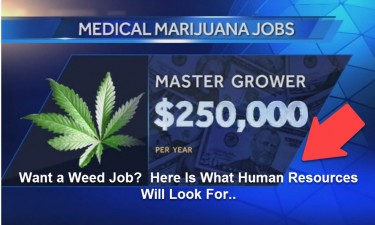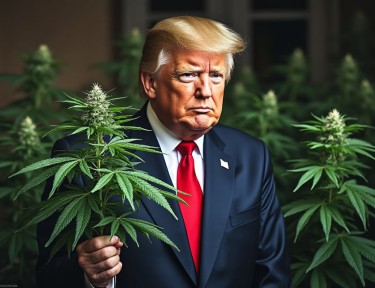Cannabis News
Direct and Ancillary CBD Liability Under the FD&C Act
Published
2 years agoon
By
admin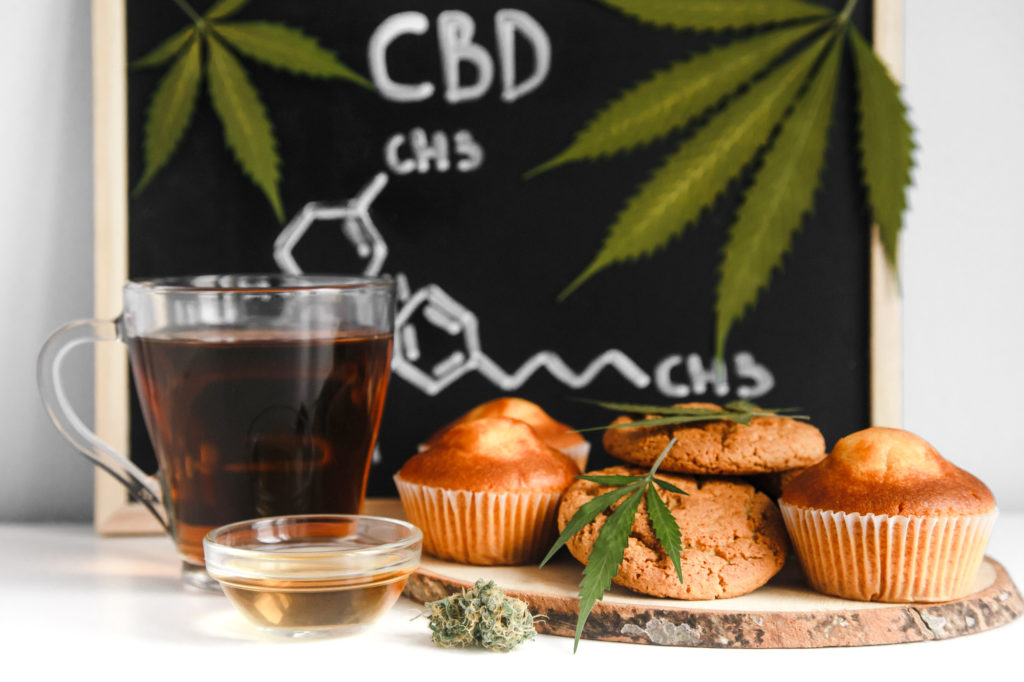
Not much thought is given to ancillary CBD liability. Why is that? Probably because the Food and Drug Administration (“FDA”) hasn’t taken any serious enforcement action against any company or individual that aids and abets violations of the Food, Drug & Cosmetic Act (the “Act”) when it comes to CBD. Still, secondary CBD liability under the Act isn’t pretty. And if you’re a company or individual that’s helping other companies or individuals make, sell, or distribute CBD products that violate the Act, you’re actually as guilty as they are under federal law.
FDA and CBD
For a while, CBD stakeholders truly believed that the FDA was prepared to regulate the robust CBD market in the U.S. That, however, will not come to pass where as of January 26, 2023, the FDA concluded that it will NOT regulate CBD foods or dietary supplements. The FDA is punting that task to Congress, which essentially means CBD laws and regulations will either never happen or they’re a far, far way off.
What all of that means is that the status quo remains intact: hemp-derived CBD is not an illegal controlled substance under U.S. law, but it also isn’t a supplement and it cannot be an ingredient in food and beverages for humans or pets without violating the Act. And marketing any bodily or curative effects of CBD was (and still is) off limits.
CBD liability for CBD retailers to date has taken the shape of enforcement letters from the FDA. See here for the most recent examples. Those letters get a massive shoulder shrug from the CBD industry on the whole. Especially since a multitude of states actually allow CBD to be added to food and beverages in conflict with the Act.
FDA and the enforcement spectrum
Many in the CBD industry may not be aware of the risk spectrum when it comes to CBD liability with the FDA. Per the FDA’s own guidance, this is how it tees up enforcement, generally:
- Warning Letters. These are sent to the individuals or firms, advising them of specific noted violations. These letters request a written response as to the steps which will be taken to correct the violation. These letters constitute one form of warning that can be issued under current Agency policy.
- Seizure of CBD products. An action brought against an FDA-regulated product because it is adulterated and/or misbranded within the meaning of the Act. The purpose of such an action is to remove specific violative goods from commerce.
- Injunction from CBD product sales. An order by a court that requires an individual or corporation to do or refrain from doing a specific act. FDA may seek injunctions against individuals and/or corporations to prevent them from violating or causing violations of the Act.
- Criminal prosecution of CBD seller. Criminal prosecution may be recommended in appropriate cases for violation of Section 301 of the Act (this specifically goes to selling or delivering into interstate commerce any food, drug, device, tobacco product, or cosmetic that is adulterated or misbranded, among other things). Misdemeanor convictions, which do not require proof of intent to violate the Act, can result in fines and/or imprisonment up to one year. Felony convictions, which apply in the case of a second violation or intent to defraud or mislead, can result in fines and/or imprisonment up to three years.
Then there are the criminal fines under the Act. Misdemeanor fines under the Act may reach $500,000 under some circumstances. The Criminal Fine Enforcement Act of 1984 (Public Law 98-596) provides for fines for violations of federal law. Although it is not part of the Act, the Criminal Fine Enforcement Act of 1994 applies to all fines levied under the Act, as well as other statutes that contain provisions enforced by FDA.
The following fines are applicable for each offense:
- Up to $100,000 for a misdemeanor by an individual that does not result in death.
- Up to $200,000 for a misdemeanor by a corporation that does not result in death.
- Up to $250,000 for a misdemeanor by an individual that results in death, or a felony.
- Up to $500,000 for a misdemeanor by a corporation that results in death, or a felony.
The maximum imprisonment for a misdemeanor under the Act remains a year for each offense.
FDA, CBD enforcement, and criminal CBD liability
In its warning letters to a variety of CBD companies, you’ll find the following directive from the FDA:
“Based on our review, these products are unapproved new drugs sold in violation of section 505(a) of the Federal Food, Drug, and Cosmetic Act (FD&C Act), 21 U.S.C. § 355(a). Furthermore, these products are misbranded drugs under section 502 of the FD&C Act, 21 U.S.C. § 352. The introduction or delivery for introduction of these products into interstate commerce is prohibited under sections 301(a) and (d) of the FD&C Act, 21 U.S.C. § 331(a) and (d).”
The typical translation is that because the CBD company is either marketing and/or selling its CBD products as supplements or “drugs” (due to medical, curative, bodily, disease or health claims about the products), it’s violating the Act and must cease the illegal conduct stat. In its letters, the FDA concludes that “failure to adequately correct any violations may result in legal action, including, without limitation, seizure and injunction.” The agency doesn’t mention any criminal liability and it is indeed rare, but it’s possible in certain cases; and criminal conduct under the Act carries a strict liability standard.
There’s a good reason why criminal prosecution under the Act is a bit of a novelty– affirmative defenses. Namely, if corporate officers of an offending company can show that they “exercised extraordinary care”, but weren’t otherwise able to prevent violations of the Act, the burden shifts to the Feds to prove beyond a reasonable doubt that the officer wasn’t in fact helpless to stop or remediate violations of the Act. And persons who in “good faith” merely receive and later deliver an illegal product cannot be subjected to criminal penalties under the Act. Finally, anyone who receives an illegal product in “good faith” and obtained a “written guaranty” that the product doesn’t violate the Act likewise cannot be prosecuted.
Ancillary CBD liability
There are many ancillary service providers propping up the CBD industry– distributors, financial institutions, payment processors, landlords, advertisers, etc. Under the Act, and per the FDA’s own interpretation:
“nearly everyone involved . . . in interstate commerce, such as manufacturers, packers, distributors, and retailers, is responsible for assuring that he or she is not dealing in products that are adulterated or misbranded, even if someone else caused the adulteration or misbranding in the first place. If you introduce it into interstate commerce or receive it in interstate commerce, you are responsible. The law applies to components and packaging as well as to finished products.”
In the case of United States v. Dotterweich, the U.S. Supreme Court found that:
a corporation may commit an offense and all persons who aid and abet its commission are equally guilty. Whether an accused shares responsibility in the business process resulting in unlawful distribution depends on the evidence produced at the trial and its submission–assuming the evidence warrants it–to the jury under appropriate guidance. The offense is committed, unless the enterprise which they are serving enjoys the immunity of a guaranty, by all who do have such a responsible share in the furtherance of the transaction which the statute outlaws, namely, to put into the stream of interstate commerce adulterated or misbranded drugs [emphasis added]. . . Balancing relative hardships, Congress has preferred to place it upon those who have at least the opportunity of informing themselves of the existence of conditions imposed for the protection of consumers before sharing in illicit commerce, rather than to throw the hazard on the innocent public who are wholly helpless.
Dotterweich addressed the criminal prosecution of Joseph H. Dotterweich, the president and general manager of The Buffalo Pharmacal Company, Inc., for the company’s violations of the Act by distributing and selling misbranded drugs. And what the case means, in part, is that any person (including a company as is included in the definition of “person” under the Act) can be criminally prosecuted for aiding and abetting violations of the Act namely depending on their “responsible share in furtherance of the transaction” that breaks the law, which will be revealed by evidence produced at trial for a jury to weigh.
Obviously, corporate officers of companies directly violating the Act have personal liability under the Act (including criminal) and the government can pierce the veil accordingly. This is well-established by case law. Does that liability and responsibility realistically extend to CBD ancillary companies that aid and abet violations of the Act? I think it could. In my opinion, it depends on how instrumental they are in getting these illegal CBD products into the hands of consumers (and maybe that’s why Google, for example, is now utilizing an extremely tight CBD advertising policy).
Considering ancillary CBD liability
No matter where you’re at in the chain of CBD manufacture, distribution, or sale, to mitigate your CBD liability, you need to make sure you’re only working with lawful actors (which, in reality, is a super small pool given the FDA’s position on CBD). And it won’t be a defense that state law otherwise allows all kinds of CBD products either, so you need to understand and know what a legal actor even is at this point, given the terrible state of the law. While CBD is obviously a massive growth area no matter what the FDA does or says, the FDA still has teeth to enforce Given the current political climate, everyone needs to be on their toes.
You may like
Cannabis News
Is There Any Green Left in the Green Rush?
Published
15 hours agoon
January 29, 2025By
admin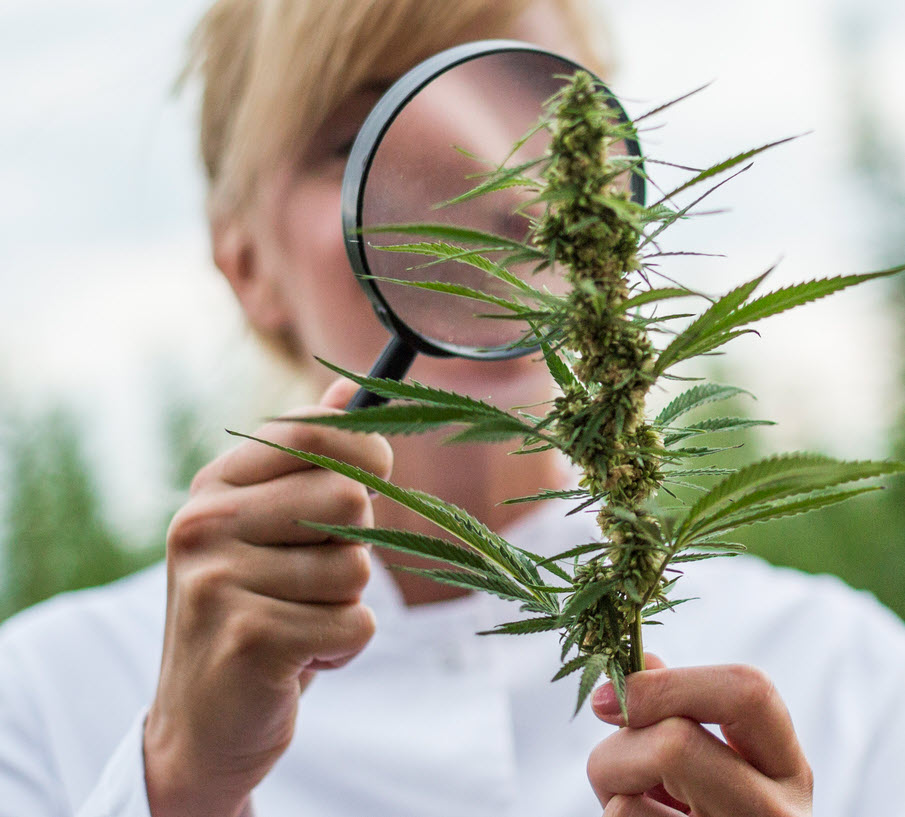
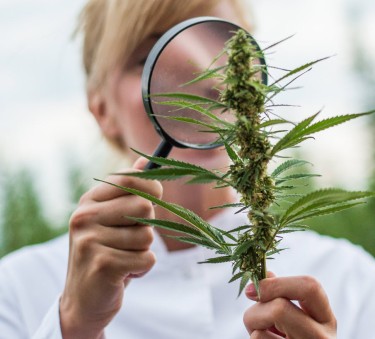
The cannabis industry has undergone a remarkable transformation over the past decade, evolving from a largely underground market to a legitimate and booming sector. As more states and countries legalize cannabis for medical and recreational use, the demand for skilled professionals has surged. This growth has led to the emergence of various high-paying cannabis job opportunities that cater to a wide range of expertise. In this article, we will explore some of the highest-paying jobs in the cannabis industry, their roles, responsibilities, and the skills required to excel in these positions.
The Cannabis Industry Landscape
Before diving into specific job roles, it’s essential to understand the current landscape of the cannabis industry. As of 2023, the global cannabis market is projected to reach over $70 billion by 2028, driven by increasing legalization, changing consumer attitudes, and growing acceptance of cannabis for both medicinal and recreational purposes. This rapid growth has created a demand and jobs for professionals across various sectors, including cultivation, retail, manufacturing, marketing, and compliance.
Factors Driving Job Growth
1. Legalization: As more regions legalize cannabis, new businesses are emerging, creating job opportunities across the supply chain.
2. Consumer Demand: The growing acceptance of cannabis products has led to increased consumer demand for quality products and services.
3. Innovation: The industry is witnessing continuous innovation in product development and technology, necessitating skilled professionals to drive these advancements.
4. Regulatory Compliance: Navigating complex regulations requires experts who can ensure compliance with local and federal laws.
With this backdrop in mind, let’s delve into some of the highest-paying jobs within the cannabis industry.
1. Chief Financial Officer (CFO)
The Chief Financial Officer (CFO) plays a critical role in any organization, and this is especially true in the cannabis industry. As companies navigate a complex financial landscape marked by fluctuating regulations and banking challenges, a skilled CFO is essential for guiding financial strategy.
Responsibilities
-
Financial Planning: Developing long-term financial strategies that align with company goals.
-
Budget Management: Overseeing budgets and ensuring efficient allocation of resources.
-
Regulatory Compliance: Ensuring adherence to financial regulations specific to the cannabis industry.
-
Investor Relations: Managing relationships with investors and stakeholders.
Salary Range
CFOs in the cannabis industry can expect to earn between $125,000 and $250,000 annually, depending on the size of the company and its location.
Skills Required
-
Strong analytical skills
-
Experience in financial management
-
Knowledge of cannabis regulations
-
Excellent communication skills
2. Chief Operations Officer (COO)
The Chief Operations Officer (COO) is responsible for overseeing daily operations within a cannabis company. This role is crucial for ensuring that all aspects of the business run smoothly and efficiently.
Responsibilities
-
Operational Strategy: Developing strategies to improve operational efficiency.
-
Team Management: Leading various departments such as cultivation, production, and sales.
-
Process Optimization: Implementing best practices for production and distribution.
-
Quality Control: Ensuring that products meet regulatory standards and quality expectations.
Salary Range
COOs typically earn between $125,000 and $200,000 annually.
Skills Required
-
Strong leadership abilities
-
Experience in operations management
-
Knowledge of supply chain logistics
-
Problem-solving skills
3. Vice President of Cultivation
The Vice President of Cultivation oversees all aspects of growing cannabis plants from seed to harvest. This role requires extensive knowledge of horticulture as well as business acumen.
Responsibilities
-
Cultivation Management: Directing cultivation operations to maximize yield and quality.
-
Research & Development: Staying updated on new cultivation techniques and technologies.
-
Staff Training: Training staff on best practices for plant care.
-
Compliance Oversight: Ensuring that cultivation practices adhere to state regulations.
Salary Range
This position typically commands a salary between $140,000 and $185,000 annually.
Skills Required
4. Cannabis Consultant
Cannabis consultants provide expert advice on various aspects of running a cannabis business. They often work with startups or established companies looking to optimize their operations or navigate regulatory challenges.
Responsibilities
-
Regulatory Guidance: Helping businesses understand local and federal regulations.
-
Business Strategy: Advising on market entry strategies or operational improvements.
-
Training Programs: Developing training programs for staff on compliance issues.
-
Market Analysis: Conducting research on market trends and consumer preferences.
Salary Range
Cannabis consultants can earn anywhere from $100,000 to over $250,000, depending on their expertise and client base.
Skills Required
5. Dispensary Manager
Dispensary managers oversee the daily operations of retail locations selling cannabis products. This role combines customer service with business management skills.
Responsibilities
-
Staff Management: Hiring, training, and supervising dispensary staff.
-
Inventory Control: Managing inventory levels to ensure product availability.
-
Customer Service: Ensuring high levels of customer satisfaction through excellent service.
-
Sales Strategy: Developing sales strategies to increase revenue.
Salary Range
Dispensary managers typically earn between $60,000 and $120,000, depending on location and experience.
Skills Required
-
Strong leadership qualities
-
Experience in retail management
-
Knowledge of cannabis products
-
Excellent interpersonal skills
6. Extraction Technician
Extraction technicians play a vital role in producing concentrated cannabis products such as oils and edibles. This position requires technical expertise in extraction methods.
Responsibilities
-
Extraction Processes: Performing extraction using various techniques (e.g., CO2 extraction).
-
Equipment Maintenance: Maintaining extraction equipment to ensure safety and efficiency.
-
Quality Assurance: Testing products for potency and purity.
-
Documentation: Keeping detailed records of extraction processes for compliance purposes.
Salary Range
Extraction technicians can earn between $50,000 and $90,000, depending on their level of experience.
Skills Required
-
Technical knowledge of extraction methods
-
Attention to detai Ability to work with laboratory equipment
-
Strong problem-solving skills
7. Marketing Manager
Marketing managers in the cannabis industry are responsible for developing marketing strategies that promote products while adhering to strict advertising regulations unique to this sector.
Responsibilities
-
Brand Development: Creating a strong brand identity that resonates with consumers.
-
Campaign Management: Planning and executing marketing campaigns across various channels.
-
Market Research: Analyzing market trends to identify opportunities for growth.
-
Social Media Management: Engaging with customers through social media platforms while complying with advertising regulations.
Salary Range
Marketing managers can expect salaries ranging from $70,000 to $150,000, depending on experience and company size.
Skills Required
-
Strong understanding of digital marketing
-
Creativity
-
Excellent communication skills
-
Ability to analyze market data
8. Compliance Officer
Compliance officers ensure that cannabis businesses adhere to all local, state, and federal regulations governing their operations. This role is crucial for avoiding legal issues that could jeopardize a business’s future.
Responsibilities
-
Regulatory Monitoring: Keeping up-to-date with changes in laws affecting the cannabis industry.
-
Policy Development: Creating internal policies that align with legal requirements.
-
Training Staff: Educating employees about compliance issues related to their roles.
-
Auditing Practices: Conducting regular audits to ensure adherence to regulations.
Salary Range
Compliance officers typically earn between $70,000 and $120,000, depending on experience level.
Skills Required
9. Product Development Scientist
Product development scientists are responsible for creating new cannabis products or improving existing ones. Their work involves research into formulations that meet consumer needs while adhering to safety standards.
Responsibilities
-
Researching new product formulations
-
Conducting stability testing
-
Collaborating with marketing teams
-
Ensuring compliance with health regulations
Salary Range
Product development scientists can earn between $80,000 and $130,000, depending on their expertise level.
Skills Required
-
Strong background in chemistry or biology
-
Creativity
-
Problem-solving abilities
-
Knowledge of regulatory standards
Check for open jobs in the cannabis industry near you on our job board by clicking here!
Conclusion
The cannabis industry presents an array of high-paying job opportunities across various sectors—from finance and operations management to marketing and compliance. As legalization continues to spread globally, skilled professionals will be essential for navigating this rapidly evolving landscape. Whether you’re an experienced professional looking for a career change or someone entering the job market for the first time, there are numerous pathways available within this exciting field. By acquiring relevant skills and knowledge about the industry’s unique challenges and opportunities, you can position yourself for success in one of today’s most dynamic job markets.
HIGHEST PAYING JOBS IN WEED, READ ON…
Cannabis News
Not Just Alcohol Sales Dropping, Anxiety Medication Prescriptions Plummet in States with Legal Cannabis Programs
Published
2 days agoon
January 28, 2025By
admin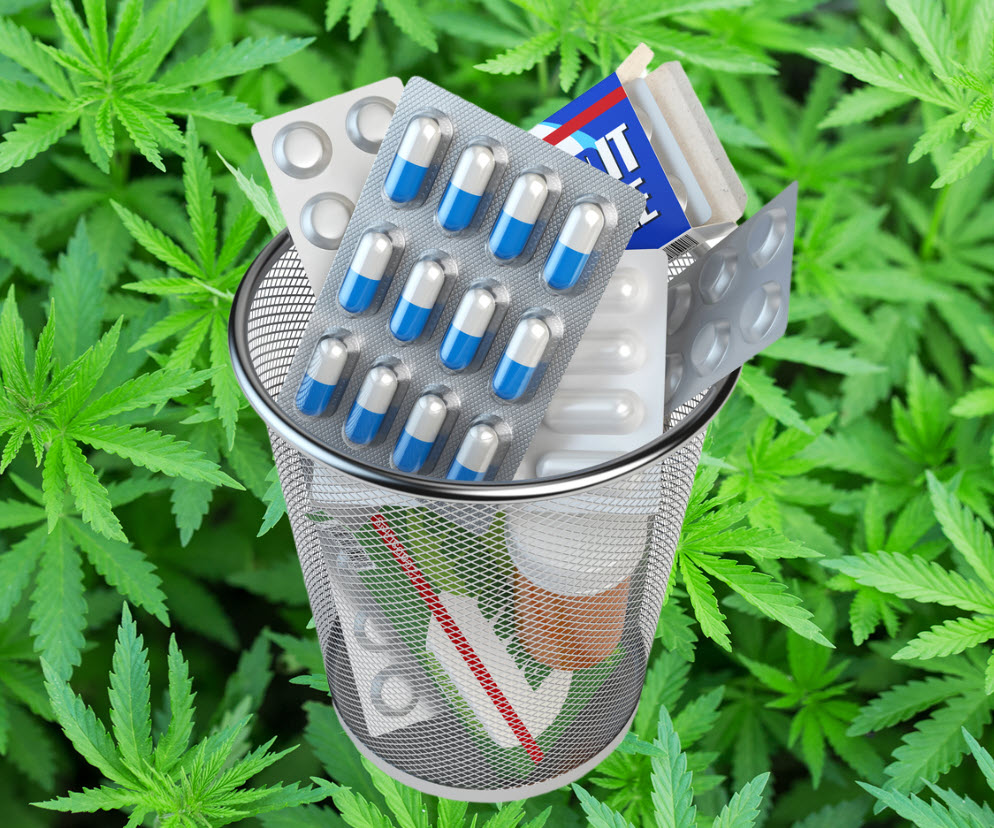
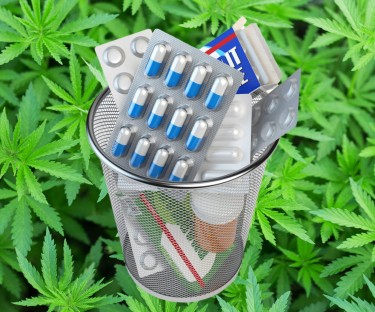
The legalization of marijuana has sparked a significant shift in the landscape of mental health treatment, particularly concerning anxiety disorders. Recent studies have indicated a notable decrease in prescriptions for anti-anxiety medications, especially benzodiazepines, in states where marijuana has been legalized. This phenomenon raises important questions about the implications for pharmaceutical companies that have long dominated the market for anxiety treatments. In this article, we will explore the connection between legal marijuana and the decline in anxiety medication prescriptions, delve into the broader implications for the pharmaceutical industry, and consider what this means for patients and healthcare providers.
Understanding Anxiety Disorders and Current Treatment Options
The Prevalence of Anxiety Disorders
Anxiety disorders are among the most common mental health issues affecting millions of individuals worldwide. According to the World Health Organization (WHO), anxiety disorders affect approximately 264 million people globally. These disorders encompass a range of conditions, including generalized anxiety disorder (GAD), social anxiety disorder, panic disorder, and specific phobias. Symptoms can vary widely but often include excessive worry, restlessness, fatigue, difficulty concentrating, and physical symptoms such as increased heart rate and sweating.
Traditional Treatments for Anxiety
Historically, treatment options for anxiety disorders have included psychotherapy and pharmacotherapy. Common pharmacological treatments include:
-
Benzodiazepines: Medications such as diazepam (Valium), lorazepam (Ativan), and alprazolam (Xanax) are frequently prescribed for short-term relief of acute anxiety symptoms. While effective, these medications carry risks of dependency and withdrawal symptoms.
-
Selective Serotonin Reuptake Inhibitors (SSRIs): Drugs like sertraline (Zoloft) and fluoxetine (Prozac) are often used as first-line treatments for chronic anxiety disorders. They work by increasing serotonin levels in the brain but can take several weeks to show effects.
-
Cognitive Behavioral Therapy (CBT): This form of psychotherapy is widely regarded as an effective treatment for anxiety disorders. CBT focuses on changing negative thought patterns and behaviors associated with anxiety.
Despite their effectiveness, many patients experience side effects from these medications or find them insufficient in managing their symptoms. As a result, there is growing interest in alternative treatments, including legal marijuana.
The Rise of Legal Marijuana
In recent years, various states in the U.S. have moved toward legalizing marijuana for both medical and recreational use. As of 2023, over 30 states have legalized medical marijuana, while several others have legalized it for recreational use. This trend reflects changing public attitudes toward cannabis and increasing recognition of its potential therapeutic benefits.
Medical Marijuana and Anxiety Relief
Cannabis contains numerous compounds known as cannabinoids, with tetrahydrocannabinol (THC) and cannabidiol (CBD) being the most studied. THC is responsible for the psychoactive effects associated with marijuana use, while CBD is non-psychoactive and has garnered attention for its potential therapeutic properties.
Research suggests that CBD may help alleviate anxiety symptoms without the side effects commonly associated with traditional anti-anxiety medications. A 2019 study published in The Permanente Journal found that CBD significantly reduced anxiety scores in a group of patients within a month of treatment.
The Connection Between Legal Marijuana and Reduced Anxiety Medication Prescriptions
A groundbreaking study published in JAMA Network Open examined prescription data from states that legalized marijuana. The researchers found that states with medical cannabis laws experienced a 12.4% reduction in benzodiazepine prescriptions, while those with recreational laws saw a 15.2% decrease. This data suggests that patients may be substituting cannabis for traditional anti-anxiety medications.
Patient Behavior and Preferences
Several factors may contribute to patients’ decisions to turn to legal marijuana instead of pharmaceuticals:
1. Perceived Safety: Many individuals view cannabis as a safer alternative to benzodiazepines due to the latter’s association with dependency and withdrawal issues.
2. Efficacy: Patients often report positive experiences with cannabis in managing their anxiety symptoms, leading them to prefer it over conventional medications.
3. Holistic Approach: Cannabis is often perceived as part of a more holistic approach to health that includes lifestyle changes, mindfulness practices, and alternative therapies.
4. Accessibility: In states where cannabis is legal, obtaining it may be easier than navigating the healthcare system to secure prescriptions for traditional medications.
Implications for Pharmaceutical Companies
The decline in benzodiazepine prescriptions linked to legal marijuana poses significant challenges for pharmaceutical companies that produce these medications. Here are some key implications:
Market Dynamics
As more patients seek cannabis as an alternative treatment for anxiety, pharmaceutical companies may face reduced demand for their products. This shift could lead to decreased revenue from anti-anxiety medications, prompting companies to reevaluate their market strategies.
Research and Development Focus
Pharmaceutical companies may need to adapt by investing in research related to cannabis-based therapies or developing new products that incorporate cannabinoids. Some companies are already exploring synthetic cannabinoids or formulations that combine traditional pharmaceuticals with cannabis extracts.
Regulatory Challenges
The evolving legal landscape surrounding cannabis presents regulatory challenges for pharmaceutical companies. As more states legalize marijuana, there may be increased scrutiny regarding its safety and efficacy compared to traditional medications.
Broader Implications for Mental Health Treatment
The rise of legal marijuana as a treatment option signals a potential shift in how mental health care is approached:
1. Integration of Cannabis into Treatment Plans: Healthcare providers may begin incorporating cannabis into treatment plans alongside traditional therapies. This integration could lead to more individualized care tailored to patients’ preferences.
2. Increased Focus on Patient-Centered Care:The growing acceptance of cannabis reflects a broader trend toward patient-centered care models that prioritize patient preferences and experiences in treatment decisions.
3. Need for Education: As patients increasingly seek information about cannabis as a treatment option, healthcare providers must be equipped with knowledge about its benefits and risks to guide informed decision-making.
Potential Risks and Considerations
While legal marijuana offers promising alternatives for managing anxiety, it is essential to consider potential risks:
1. Lack of Regulation:The cannabis industry is less regulated than pharmaceuticals, leading to concerns about product quality, dosing accuracy, and potential contaminants.
2. Individual Variability: Responses to cannabis can vary widely among individuals due to factors such as genetics, tolerance levels, and underlying health conditions.
3. Potential for Misuse: While many individuals use cannabis responsibly, there is potential for misuse or over-reliance on it as a coping mechanism.
Conclusion
The link between legal marijuana and decreased prescriptions for anti-anxiety medications marks a significant development in mental health treatment paradigms. As more patients turn to cannabis as an alternative therapy, pharmaceutical companies must adapt to this changing landscape by reevaluating their strategies and investing in research related to cannabinoid-based treatments. For patients grappling with anxiety disorders, this shift could herald a new era of treatment options that prioritize safety, efficacy, and individual preferences. However, it also necessitates ongoing dialogue among healthcare providers about the best approaches to integrate cannabis into mental health care while ensuring patient safety.As we move forward into this evolving landscape of mental health treatment options, it is crucial to remain vigilant about the implications of these changes—both positive and negative—for patients seeking relief from anxiety disorders and the broader healthcare system at large.
—
This article provides an extensive overview of how the legalization of marijuana is linked to changes in medication prescriptions for anxiety disorders while discussing its implications on pharmaceutical companies and mental health treatment paradigms overall.
CANNABIS REPLACES BENZOS? READ ON…
Cannabis News
An Important Lesson from the 2024 Elections
Published
4 days agoon
January 26, 2025By
admin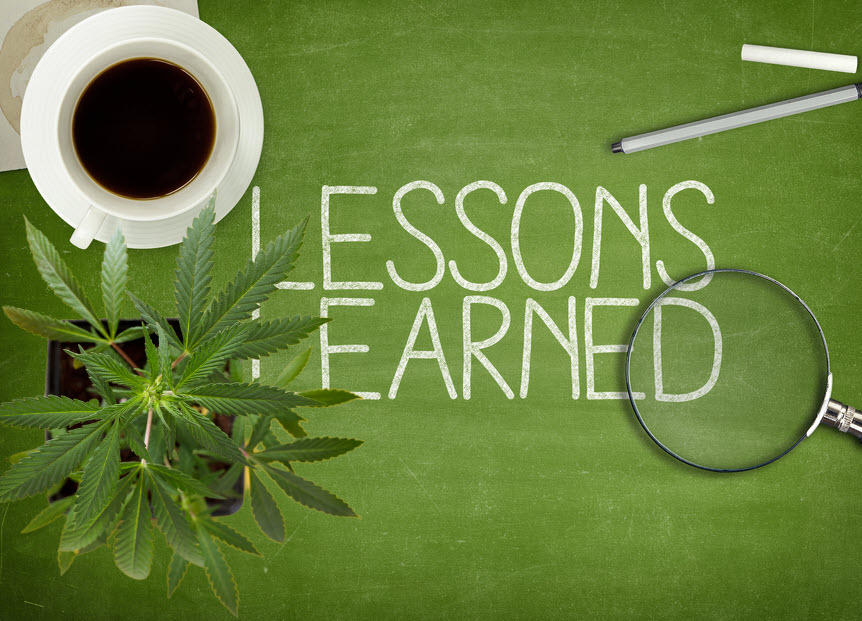

Retrospect: An Important Lesson to learn from the 2024 Elections
Well folks, here we are again. Donald Trump is back in the White House, and if his previous term taught us anything, we’re strapping in for one hell of a rollercoaster ride. I can already feel my inbox filling up with requests to write about the latest Trump cannabis controversy or whatever inflammatory tweet is setting the internet ablaze.
But I’ll be honest with you – I’m going to try my damnedest to avoid turning this platform into yet another Trump commentary channel. Lord knows we’ve got enough of those already. Between the mainstream media’s obsession with every presidential syllable and the circus surrounding Elon Musk and RFK Jr.’s alliance with Trump, we’re already drowning in political theater. I mean, just look at the current media frenzy over “Did Elon Nazi Salute?” after Trump’s inauguration speech. If that’s any indication, we’re in for four years of non-stop sensationalism.
Here’s the thing though – as someone who prides himself on staying above the partisan fray (and believe me, that’s getting harder by the day), I feel obligated to share some hard-earned wisdom about navigating the cannabis landscape during these politically charged times. The last four years under Biden’s administration taught us some valuable lessons about political promises and cannabis reform, and those insights are more relevant than ever as we enter this new chapter.
So grab your favorite strain, settle into your comfy spot, and let old Reginald share some perspective on what we’ve learned and how to keep our heads straight during what’s sure to be an… interesting four years ahead.
If there’s one thing I’ve learned from years of covering cannabis politics, it’s that weed polls better than politicians – and boy, do they know it. It might sound like I’m hitting the bong too hard, but the numbers don’t lie. Election after election, cannabis legalization consistently polls higher than any candidate running for office. With pseudo-legalization spreading across the country like wildfire, there are more cannabis supporters than ever before, making us quite the tempting voting bloc.
This reality wasn’t lost on the Democrats during their four-year stint. They dangled cannabis reform like a carrot on a stick, making grand promises about prioritizing legalization. Remember Kamala Harris, suddenly becoming cannabis’s biggest cheerleader? The same Kamala who oversaw countless marijuana prosecutions as California’s Attorney General was now preaching about social justice and legalization. The irony was thicker than smoke in a hotboxed Volkswagen.
For the first few years of the Biden administration, we got nothing but lip service. Then, as election season approached – wouldn’t you know it – suddenly cannabis reform became urgent. Pot pardons! Rescheduling! It was like watching a dealer who ghosted you for months suddenly sliding into your DMs with “you up?”
And some folks ate it up. I saw countless posts from well-meaning stoners declaring their undying loyalty to Biden-Harris based solely on these eleventh-hour cannabis promises. But let’s get real – those pardons didn’t free a single soul from prison, and the rescheduling circus? Well, that’s still stuck in bureaucratic limbo, likely to face years of litigation if it ever materializes.
Here’s the kicker though – despite all this pot pandering, Trump still won. Why? Because while cannabis reform is important, Americans were more concerned about putting food on their tables, feeling safe in their communities, and managing the immigration crisis. The Democrats were so busy virtue signaling about helping marginalized communities that they forgot about the broader population’s immediate concerns. That’s like focusing on growing exotic strains while your basic crops are dying – it might sound cool, but it won’t feed the masses.
The result? Not only did they lose the election, but they strung along millions of cannabis supporters for absolutely nothing. No legalization, no meaningful reform, just empty promises and disappointed voters. And therein lies our lesson, my friends. Politicians will always love pot pandering because they know we’re passionate about legalization. But when their promises go up in smoke, we’re the ones left holding an empty bag.
Here’s a draft in Reginald Reefer’s voice:
Let me tell you why I stay away from political parties like they’re contaminated bathwater. It’s not because I don’t care about society or our collective rights – quite the opposite. It’s because these parties are like ill-fitting suits; they might look good on the rack, but once you try them on, nothing quite sits right.
Take me, for example. On some issues, I’m as “Republican” as they come. I believe in keeping government small (because let’s face it, they tend to mess up everything they touch), rewarding merit over handouts, cutting through red tape, and protecting individual liberties. You know, the whole “leave me alone to grow my plants in peace” mentality.
But flip the coin, and suddenly I’m singing from the Democratic hymnal. I believe in drug reform (obviously), holding big corporations accountable for their shenanigans, protecting Mother Earth, and letting people love whoever they damn well please. Some might say this makes me a libertarian, but I prefer to think of myself as an anarchist – not in the “chaos in the streets” sense, but in the “I don’t need a master telling me what to do” sense.
Now, if I were to play the political game (which I’m not, but let’s pretend), here’s how I’d approach it. During campaign season? Sure, I’d fight like hell to get my candidate in office. Wave the signs, spread the word, do the whole song and dance. But the moment they win? That’s when the real work begins.
See, this is where most people get it wrong. They treat their political party like a sports team, blindly cheering even when their players are dropping the ball. But that’s not how democracy should work. The minute your candidate takes office, you need to transform from their biggest cheerleader into their harshest critic.
Stop swooning over their tweets and start scrutinizing their actions. Forget what they promised on the campaign trail – what are they actually doing now? Are they following through, or are they just blowing smoke? If they’re not living up to their word, it’s time to make some noise. Call your representatives, flood their offices with emails, make your voice heard.
That’s the thing about political promises – they’re like rolling papers in the wind unless someone holds these politicians accountable. And who better to do that than the people who put them in office? Don’t let them get comfortable. Don’t let them forget who they work for.
So over these next four years, whether you’re a Trump supporter or just someone trying to navigate this political circus, remember: Your job isn’t to defend your candidate’s every move. Your job is to keep them honest, keep them working, and keep them afraid of disappointing their constituents. Because at the end of the day, politicians are like cannabis plants – they need constant attention and occasional pruning to produce anything worthwhile.
Let’s talk about the orange elephant in the room. Love him or hate him, Trump isn’t your typical politician – mainly because he isn’t one. He’s more like a chaos wizard who somehow got hold of the nuclear codes. But here’s the thing that makes covering Trump so interesting: unlike most politicians who make promises they never intend to keep, this guy actually follows through on some wild stuff.
Take his first few weeks back in office. While the media was having a meltdown about his latest tweet, Trump was busy declassifying JFK and MLK documents that have been gathering dust for decades. But the real head-turner? Pardoning Ross Ulbricht, aka the Dread Pirate Roberts. Here’s a guy who got two life sentences without parole for… what exactly? Creating a website? Sure, people sold drugs on the Silk Road, but by that logic, we should throw Mark Zuckerberg in prison every time someone sells weed through Facebook Messenger.
And he’s not done. RFK Jr. – the black sheep of the Kennedy family who’s been raising hell about pharmaceutical companies – is set to head Health and Human Services. Meanwhile, Trump’s already making good on his immigration promises faster than you can say “build the wall.” It’s clear this isn’t the same Trump from 2016. He’s got new allies, new strategies, and seemingly fewer fucks to give than ever before.
But here’s where things get murky, folks. While Trump’s making moves that have libertarians and anti-establishment types cheering, he’s also cozying up to some seriously sketchy characters. Take Larry Ellison, the Oracle overlord who’s got deeper CIA connections than my grow room has spider mites. For those who don’t know, Oracle started as a CIA project in 1977 with Ellison at the helm, though they’ll swear up and down it’s all ancient history. Yeah, and I’m just growing tomatoes in my basement.
What’s particularly concerning is all this talk about using AI to develop mRNA vaccines. I don’t know about you, but combining artificial intelligence, experimental vaccines, and a company with intelligence agency roots sounds like the plot of a dystopian novel I don’t want to live through.
So here we are, watching Trump do some genuinely positive things while simultaneously setting up what could be the infrastructure for a technocratic surveillance state. It’s like finding out your dealer is giving you great prices but also installing cameras in your house. Sure, the weed’s good, but at what cost?
This is why, my friends, we need to stay vigilant. Celebrate the wins when they come, but keep your eyes wide open and your bullshit detectors finely tuned. Because in Trump’s America 2.0, the only thing we can be certain of is uncertainty itself.
TRUMP ON MARIJUANA LEGALIZATION, READ ON…

How AI Impacts The Cannabis Industry

Is There Any Green Left in the Green Rush?

The Best Marijuana Strains For Your Chinese Zodiac Sign

Cannabis Can Get Rid Of The Doomsday Clock Blues

Will Snoop Dogg Use His New Influence To Help Cannabis

Not Just Alcohol Sales Dropping, Anxiety Medication Prescriptions Plummet in States with Legal Cannabis Programs

Why 2025 could be a banner year for cannabis investors

Alaska Law Enforcement significantly increases illegal drug seizures in 2024

Is Cannabis Now The #1 Sleep Aid

Will Representative Dina Titus Help Cannabis

Distressed Cannabis Business Takeaways – Canna Law Blog™

United States: Alex Malyshev And Melinda Fellner Discuss The Intersection Of Tax And Cannabis In New Video Series – Part VI: Licensing (Video)

What you Need to Know

Drug Testing for Marijuana – The Joint Blog

NCIA Write About Their Equity Scholarship Program

It has been a wild news week – here’s how CBD and weed can help you relax

Cannabis, alcohol firm SNDL loses CA$372.4 million in 2022

A new April 20 cannabis contest includes a $40,000 purse

Your Go-To Source for Cannabis Logos and Designs

UArizona launches online cannabis compliance online course
Trending
-

 Cannabis News2 years ago
Cannabis News2 years agoDistressed Cannabis Business Takeaways – Canna Law Blog™
-

 One-Hit Wonders2 years ago
One-Hit Wonders2 years agoUnited States: Alex Malyshev And Melinda Fellner Discuss The Intersection Of Tax And Cannabis In New Video Series – Part VI: Licensing (Video)
-

 Cannabis 1012 years ago
Cannabis 1012 years agoWhat you Need to Know
-

 drug testing1 year ago
drug testing1 year agoDrug Testing for Marijuana – The Joint Blog
-

 Education2 years ago
Education2 years agoNCIA Write About Their Equity Scholarship Program
-

 Cannabis2 years ago
Cannabis2 years agoIt has been a wild news week – here’s how CBD and weed can help you relax
-

 Marijuana Business Daily2 years ago
Marijuana Business Daily2 years agoCannabis, alcohol firm SNDL loses CA$372.4 million in 2022
-

 California2 years ago
California2 years agoA new April 20 cannabis contest includes a $40,000 purse




